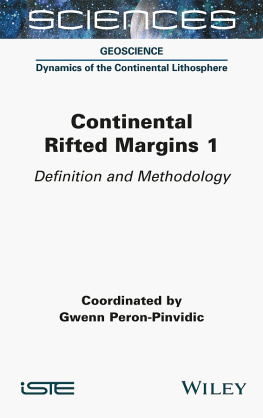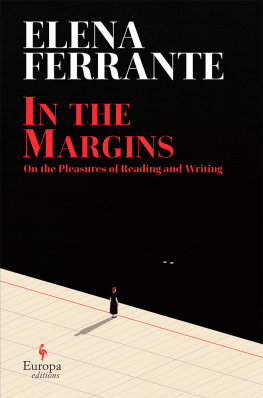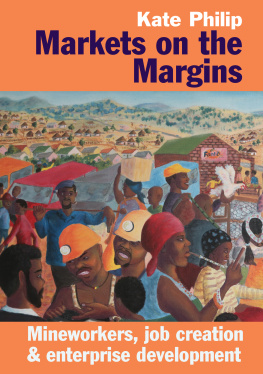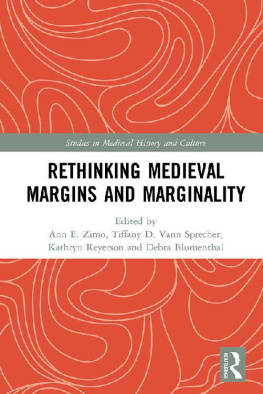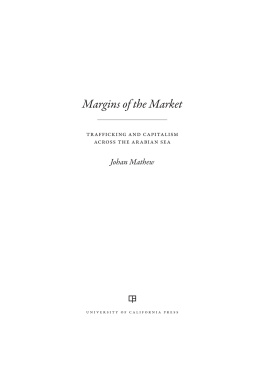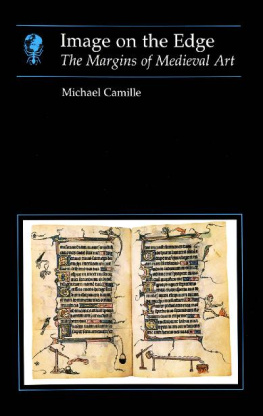Understanding the City through its Margins
Cities the world over and in particular in developing countries suffer from uneven development and inequality. This is often coupled with the view that these inequalities constitute unfortunate anomalies. In contrast, this edited volume draws out the ways in which the city has not been able to exist without its margins, materially, ideationally and socially. In this book the margins are, first, the mirrors of the city and, second, a fundamental route through which various centres can legitimate and sustain their power. Contemporary case studies are compared to a number of those from history with the accent on Asia, Africa and the Middle East, and engage with the underlying theoretical questions of what is the urban margin and what is marginality in urban societies and spaces?
Andr Chappatte, Ulrike Freitag and Nora Lafi are all at the Leibniz-Zentrum Moderner Orient, Berlin, Germany.
Routledge Studies in Modern History
For a full list of titles in this series, please visit www.routledge.com/history/series/MODHIST
23War, Peace and International Order?
The Legacies of The Hague Conferences of 1899 and 1907
Edited by Maartje Abbenhuis, Christopher Ernest Barber and Annalise R. Higgins
24Black Cosmopolitanism and Anticolonialism
Pivotal Moments
Babacar MBaye
25Constructing Nationalism in Iran
From the Qajars to the Islamic Republic
Meir Litvak
26War and Diplomacy in East and West
A Biography of Jzef Retinger
M. B. B. Biskupski
27Museums in the Second World War
Curators, Culture and Change
Catherine Pearson and edited by Suzanne Keene
28The Chronicle of a Peoples War: The Military and Strategic History of the Cambodian Civil War, 19791991
Boraden Nhem
29The Assyrian Genocide
Cultural and Political Legacies
Edited by Hannibal Travis
30The Russo-Japanese War and its Shaping of the Twentieth Century
Frank Jacob
31Understanding the City through its Margins
Pluridisciplinary Perspectives from Case Studies in Africa, Asia and the Middle East
Edited by Andr Chappatte, Ulrike Freitag and Nora Lafi
First published 2018
by Routledge
2 Park Square, Milton Park, Abingdon, Oxon OX14 4RN
and by Routledge
711 Third Avenue, New York, NY 10017
Routledge is an imprint of the Taylor & Francis Group, an informa business
2018 selection and editorial matter, Andr Chappatte, Ulrike Freitag and Nora Lafi; individual chapters, the contributors
The right of Andr Chappatte, Ulrike Freitag and Nora Lafi to be identified as the authors of the editorial material, and of the authors for their individual chapters, has been asserted in accordance with sections 77 and 78 of the Copyright, Designs and Patents Act 1988.
All rights reserved. No part of this book may be reprinted or reproduced or utilised in any form or by any electronic, mechanical, or other means, now known or hereafter invented, including photocopying and recording, or in any information storage or retrieval system, without permission in writing from the publishers.
Trademark notice: Product or corporate names may be trademarks or registered trademarks, and are used only for identification and explanation without intent to infringe.
British Library Cataloguing-in-Publication Data
A catalogue record for this book is available from the British Library
Library of Congress Cataloging-in-Publication Data
A catalog record for this book has been requested
ISBN: 978-1-138-04589-7 (hbk)
ISBN: 978-1-315-17171-5 (ebk)
Typeset in Sabon
by Apex CoVantage, LLC
Ufuk Adak is a historian at the Department of Social Sciences at Altnba University. He is a specialist on the history of crime, punishment, and prisons in the late Ottoman Empire. Adak co-edited the special issue of the Journal of Ottoman and Turkish Studies Association (JOTSA) on crime, punishment, and social control in 2017.
Andr Chappatte graduated from the School of Oriental and African Studies in 2013. He is a research fellow of the research group on Cities as Laboratories of Change at Leibniz-Zentrum Moderner Orient in Berlin. His postdoctoral interests are the socio-sensory unfolding of a Muslim life in relation to public morality, secrecy and desire at night in secondary towns of the West African savanna as well as the growth of border towns in southern Mali and northern Cte dIvoire.
Jeanine Dayeli is a research fellow at Leibniz-Zentrum Moderner Orient in Berlin. She studied sociology and Central Asian and Islamic Studies and has conducted ethnographic and archival research in Kyrgyzstan, Uzbekistan and Tajikistan. Her research interests include the (historical) anthropology of Central Asia, especially labour, the moral economy and human-nature relations as well as perceptions of illness and death.
Ulrike Freitag is a historian of the Modern Middle East. She has worked on Syrian historiography in the 20th century, on South Arabian migration in the Indian Ocean and is currently focussing on urban history on the Peninsula. Among her publications are Indian Ocean Migrants and State Formation in Hadhramaut (2003), Translocality: The Study of Globalising Processes from a Southern Perspective (2010, ed. with Achim von Oppen) and Urban Violence in the Middle East: Changing Cityscapes in the Transition from Empire to Nation State (2015, ed. with N. Fuccaro, C. Ghrawi, N. Lafi). Since 2002, she has been director of Leibniz-Zentrum Moderner Orient and professor of Islamic Studies at Freie Universitt Berlin.
Aksana Ismailbekova is lead researcher for Kyrgyzstan in the project Informal Governance and Corruption Transcending the Principal Agent and Collective Action Paradigms, which is funded by the British Academy (BA) DFID Anti-Corruption Evidence Programme (ACE) and led by the Basel Institute on Governance (20162017). Ismailbekova was a research fellow at Zentrum Moderner Orient (ZMO) in Berlin (20112015) as a member of the competence network Crossroads Asia.
Baktygul Karimova is currently doing research on ethnicity, identity politics and anthropology of economics. She is a PhD student at the Anthropology Department of University of Zrich.
Nora Lafi



